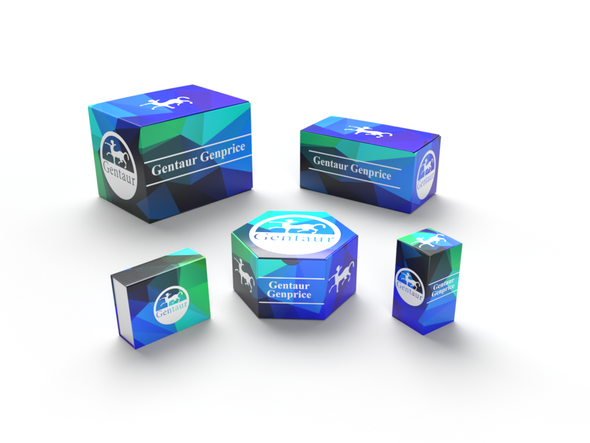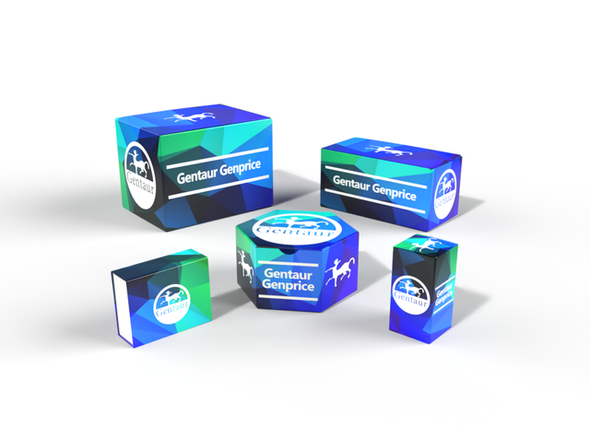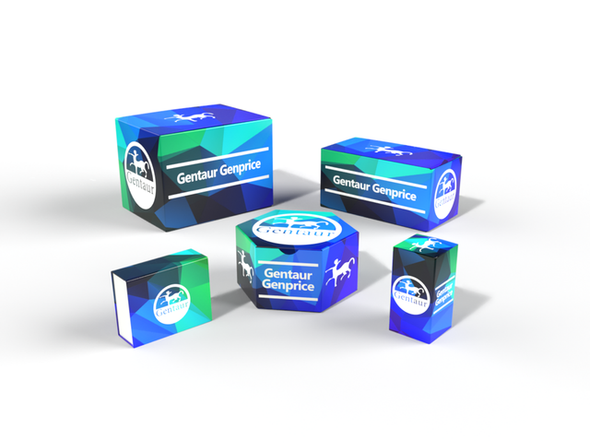BW
PAK3 (phospho-S154) polyclonal Antibody | BS4856
- SKU:
- BW-BS4856
- Availability:
- Usually ships in 5 working days
Description
PAK3 (phospho-S154) polyclonal Antibody | BS4856 | Gentaur UK, US & Europe Distribution
Host: Rabbit
Reactivity: Human,Mouse,Rat
Application: WB
Application Range: WB: 1:500~1:1000
Background: Three isoforms of serine/threonine kinases, designated αPAK p68, βPAK p65 and γPAK p62, have been shown to exhibit a high degree of sequence homology with the S. cerevisiae kinase Ste 20, involved in pheromone signaling. The α, β and γPAK isoforms complex specifically with Rac1 and Cdc42 in their active GTP-bound state, inhibiting their intrinsic GTPase activity leading to their autophosphorylation. There are eight sites of autophosphorylation on γPAK, including Ser 19, Ser 141 and Thr 402, and phosphorylation of Ser 141 and Thr 402 is correlated with γPAK activation. Once phosphorylated and their affinity for Rac/Cdc42 reduced, the PAK isoforms disassociate from the complex to seek downstream substrates.
Storage & Stability: Store at 4°C short term. Aliquot and store at -20°C long term. Avoid freeze-thaw cycles.
Specificity: p-PAK3 (S154) polyclonal Antibody detects endogenous levels of PAK3 protein only when phosphorylated at Ser154.
Molecular Weight: ~ 65 kDa
Note: For research use only, not for use in diagnostic procedure.
Alternative Names: Serine/threonine-protein kinase PAK 3; Beta-PAK; Oligophrenin-3; p21-activated kinase 3; PAK-3; PAK3; OPHN3; PAKβ;
Immunogen: Synthetic phosphopeptide derived from human PAK3 around the phosphorylation site of Serine 154.
Conjugate: Unconjugated
Modification: Phosphorylation
Purification & Purity: The Antibody was affinity-purified from rabbit antiserum by affinity-chromatography using epitope-specific immunogen and the purity is > 95% (by SDS-PAGE) .
Pathway: Regulation of Microtubule Dynamics,Epigenetic Writers and Erasers of Histones H2A H2B and H4,



![Phospho-Dnmt1 (S154) Antibody [APR32054G] Phospho-Dnmt1 (S154) Antibody [APR32054G]](https://cdn11.bigcommerce.com/s-1rdwiq712m/images/stencil/590x590/products/63197/63501/gentaur-genprice__26005.1661610467__29809.1661628092__75433.1661676199__77988.1661684280__64362.1661692443__89584.1661866515.png?c=1)


